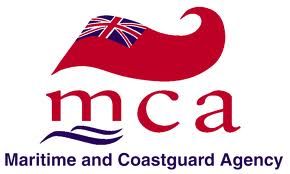
The Maritime and Coastguard Agency (MCA) has announced that it has submitted an information paper to the International Maritime Organization's Marine Environmental
Protection Committee, on behalf of the UK Government, that shows possible average fuel and emissions savings of 9.1% when Fluoropolymer Foul Release (FFR) technology is used. This suggests current industry estimates of up to 5% savings may be an underestimation.
The Information Paper MEPC 62/Inf.23 has been submitted to the MEPC 62 meeting to draw attention to the viability of this approach in reducing emissions from shipping. It also informs the MEPC of the potential scale of such savings as the Committee meets to consider the adoption of mandatory energy efficiency standards for ships.
The Information Paper is based on new evidence from a study carried out by Professor James Corbett at Energy and Environmental Research Associates, which suggests that vessels using FFR technology could save up to 22% for bulk cargo vessels, 10% for tankers and 5% for container vessels – an average of 9.1%. The report also provides evidence on potential bunker fuel savings of an average of 9.4% for other vessel types including ferries, Ro-Ro, VLCCs and LNG vessels. This was based on an analysis of tanker, bulk cargo and container vessels.
Commenting on the submission, Jonathan Simpson, Head of Environmental Policy, MCA said:
"This study shows the potential for simple solutions that can make a significant impact on reducing Greenhouse Gas emissions from ships and the industry’s impact on climate change. It is vital that ship owners and operators have the latest information on technologies and innovations that can make a real difference, so that they can make intelligent decisions on how to improve environmental performance as well as operational efficiencies.”
"The report, and work carried out at previous IMO meetings indicate that FFR technology is likely to be one of the most significant eco-efficiency technologies available to the maritime sector. In making this submission the MCA is highlighting that a simple, proven and validated solution is one of the best ways to deliver the commercial benefits and environmental improvements sought by ship owners, operators and wider society.”
While the study covers a relatively small number of vessels, the Information Paper suggests that significant benefits could be derived from the adoption of this technology on a wider scale and further indicates that adoption for suitable ships is likely to be cost beneficial to ship owners over the lifetime of the system:
Reduction in annual fuel oil consumption could be reduced by roughly 16 million metric tonnes or approximately 123 million barrels of oil if applied to all tanker and bulker vessels in the international fleet
This equates to a minimum saving of $4.4 billion in bunker fuel expenditure across bulker and tanker sectors
CO2 emissions could be reduced by an estimated 49 million metric tonnes
Bunker fuel and emissions reduction can be achieved at a ‘negative cost’ – i.e. avoided emissions are coupled with economic benefits to the ship owner
Additional potential benefits also include reduced paint volume and reduced volatile organic compound (VOC) emissions
Professor James Corbett from Energy and Environmental Research Associates will present a short executive summary of his report to IMO MEPC 62 on 12 July, 2011.
Maggie Hill
Source: MCA
We use cookies to improve your experience. By continuing to use our site, you accept our Cookies, Privacy Policy,Terms and Conditions. Close X